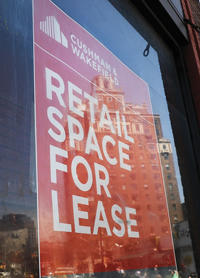 No one knows exactly what the future of cannabis will look like in the state of New Jersey. As recently as February, a survey of state senators by NJ Cannabis Insider showed that the push for legalization of recreational weed, backed by Gov. Phil Murphy, would fail. Newly elected Trenton Mayor Reed Gusciora — who, as a state assemblyman, supported three pro-marijuana bills regarding hemp, medical marijuana and recreational marijuana — said that he expects a vote this year.
No one knows exactly what the future of cannabis will look like in the state of New Jersey. As recently as February, a survey of state senators by NJ Cannabis Insider showed that the push for legalization of recreational weed, backed by Gov. Phil Murphy, would fail. Newly elected Trenton Mayor Reed Gusciora — who, as a state assemblyman, supported three pro-marijuana bills regarding hemp, medical marijuana and recreational marijuana — said that he expects a vote this year.
Those pushing for an expanded medical program and recreational use of marijuana are optimistic about the upside. Marijuana for medical purposes has been legal since 2010, and the economic impact of a much-expanded legal marijuana industry in New Jersey could be worth billions. “In Colorado, they’ve got 4.2 million square feet of cultivation space. But New Jersey has 1.5 times the population of Colorado,” said Brian Staffa of BSC Group, a cannabis industry consultant. The state also has more tourists, he said, and “a lot of interstate traffic. So I think several million square feet of industrial and warehouses will be necessary to meet demand.”
Staffa said he has already been approached by investors in New Jersey looking for real estate that meets the requirements for a legalized weed market. And it’s not just retail and industrial that will enjoy a boost from a whirlwind of pot investment. Everything from office space to farmland (greenhouse cultivation of marijuana is cheaper and more sustainable) is expected to see fresh demand.
For instance, Gusciora believes legal weed would transform Trenton, which has “suffered from economic hard times.” With the help of cannabis, Trenton could flower into a city like Portland, Maine, where industrial areas have been successfully redeveloped.
“One of the problems in Trenton is that 50 percent of our properties are tax-exempt. They either belong to the government, hospitals or God. [Legal cannabis] would allow us to put abandoned buildings back on the tax roll,” Gusciora said, pointing to defunct factory spaces such as the Roebling Wire Works, which could become weed growing facilities. “I’ve already had two [cannabis] investors come through there.”
Other sectors could get a sort of contact high from the legislation.
“You [also] have to think of all the companies that don’t actually touch the plants: the security firms, the construction firms, the IT firms,” Staffa said. “Existing businesses tend to spin off a separate company that focuses on cannabis and put that in a separate office. There is a ripple effect when cannabis comes in.”
Still, many are keeping the business at arm’s length. For instance, most REITs are prohibited from including cannabis in their portfolios because it is illegal under federal law. But that just means more room for investment from family investment firms and private equity, said Staffa.
Here, The Real Deal takes a by-the-numbers look at lighting up the Garden State.

20-30%
The average rent increase for a retail property that meets state standards of the buffer zone.
6
The current number of medical marijuana dispensary licenses issued in New Jersey.
$1 billion
The estimated state revenue from a legal New Jersey weed market in the first year, according to the law firm of Brach Eichler, which has two lawyers on Gov. Murphy’s healthcare transition committee. Of course, that number depends on just how aggressively legal weed is taxed.
$425 to $520
The current cost of one ounce of medical marijuana in New Jersey. The state recently lowered the registration fee for its medical marijuana program from $200 to $100.
50,000 to 300, 000 sq. ft.
The estimated size of a warehouse capable of producing marijuana on an industrial scale, according to Staffa.
 $1M to $2M
$1M to $2M
Estimated cost of launching a “cannabusiness” in the state of New Jersey, according to a report from NJ.com. Those interested in entering this industry will also need to have a piece of real estate in the state that fits numerous parameters and the ability to withstand TSA-level scrutiny of their background and finances.
1,000 ft.
The likely buffer zone from schools, daycare centers, playgrounds, churches and other types of religious establishments that is needed to operate a dispensary. That could mean big rent increases for properties that meet the criteria. In Philadelphia, for instance, only six properties were able to comply with all of the state’s parameters to operate a dispensary. As a result, the buffer zone was reduced to 500 feet, which greatly increased the number of available properties.
23,597
The number of patients enrolled in the state’s medical marijuana program, up from roughly 15,000 patients in 2017, according to New Jersey’s Department of Health. However, the program remains relatively small compared to say, New York’s program, which has 59,000 certified medical marijuana patients.
